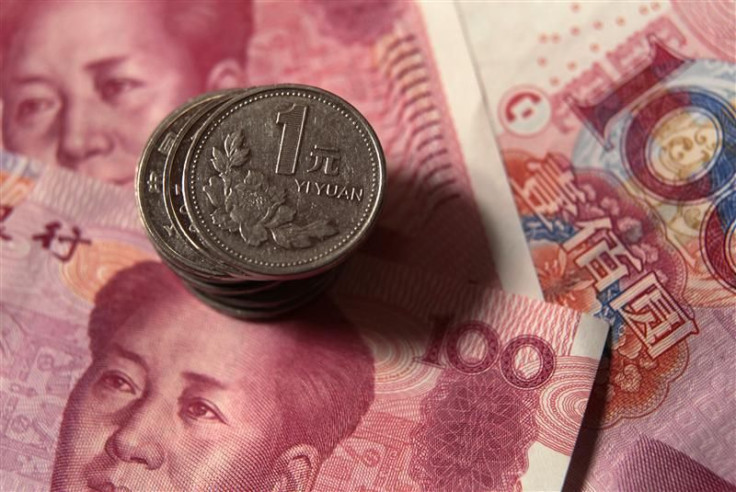China's Manufacturing Activity Slumps To 9-Month Low In August: HSBC PMI?

China's manufacturing activity fell in August compared to that in July, according to the preliminary HSBC Flash Purchasing Managers Index (PMI) released Thursday.
The preliminary reading of the PMI, a measure of the nationwide manufacturing activity, declined to 47.8 in August, which is a nine-month low, compared to 49.3 in July. The fall in the reading would increase fears of the likelihood of a sharp slowdown in the economy.
"Falling orders dragged down the August flash PMI to a nine-month low, suggesting Chinese producers are still struggling with strong global headwinds. To achieve the stated policy goal of stabilizing growth and the jobs market, Beijing must step up policy easing to lift infrastructure investment in the coming months," Hongbin Qu, chief China economist and co-head of Asian economic research at HSBC, said in a note.
There have been fears of a hard landing after data showed earlier last month that China's economy slowed down to 7.6 percent in the second quarter, down from 8.1 percent in the first quarter. Beijing is targeting a growth rate of 7.5 percent this year. In 2011 and 2010, the economy grew 9.2 percent and 10.4 percent, respectively.
Beijing's goal this year will be to promote a steady and robust economic development, keep prices stable and guard against financial risks by keeping money and credit supplies at appropriate levels while being cautious and flexible. China's investment-driven economic model, though successful for decades, is no longer seen as sustainable with the consensus being that reforms will be needed to prevent a sudden downturn.
The continuing debt crisis in Europe and the tentative U.S. recovery have hurt the demand for exports, the key driver of China's economy. The International Monetary Fund has warned that escalation of the euro zone debt problems could slash China's 2012 GDP growth in half.
Earlier this month, China reported a trade surplus of $25.1 billion in July amid the slower-than-expected growth in exports and imports, raising concern that the world's second largest economy isn't doing enough to stimulate the economy and avert a slowdown.
Last month, the People's Bank of China cut interest rates for the second time this year. The one-year benchmark lending rate was reduced by 31 bps, taking it to 6 percent. This easing in the monetary policy is seen as a much-needed thrust to boost liquidity in the financial system and help the economy regain its growth momentum.
© Copyright IBTimes 2025. All rights reserved.





















